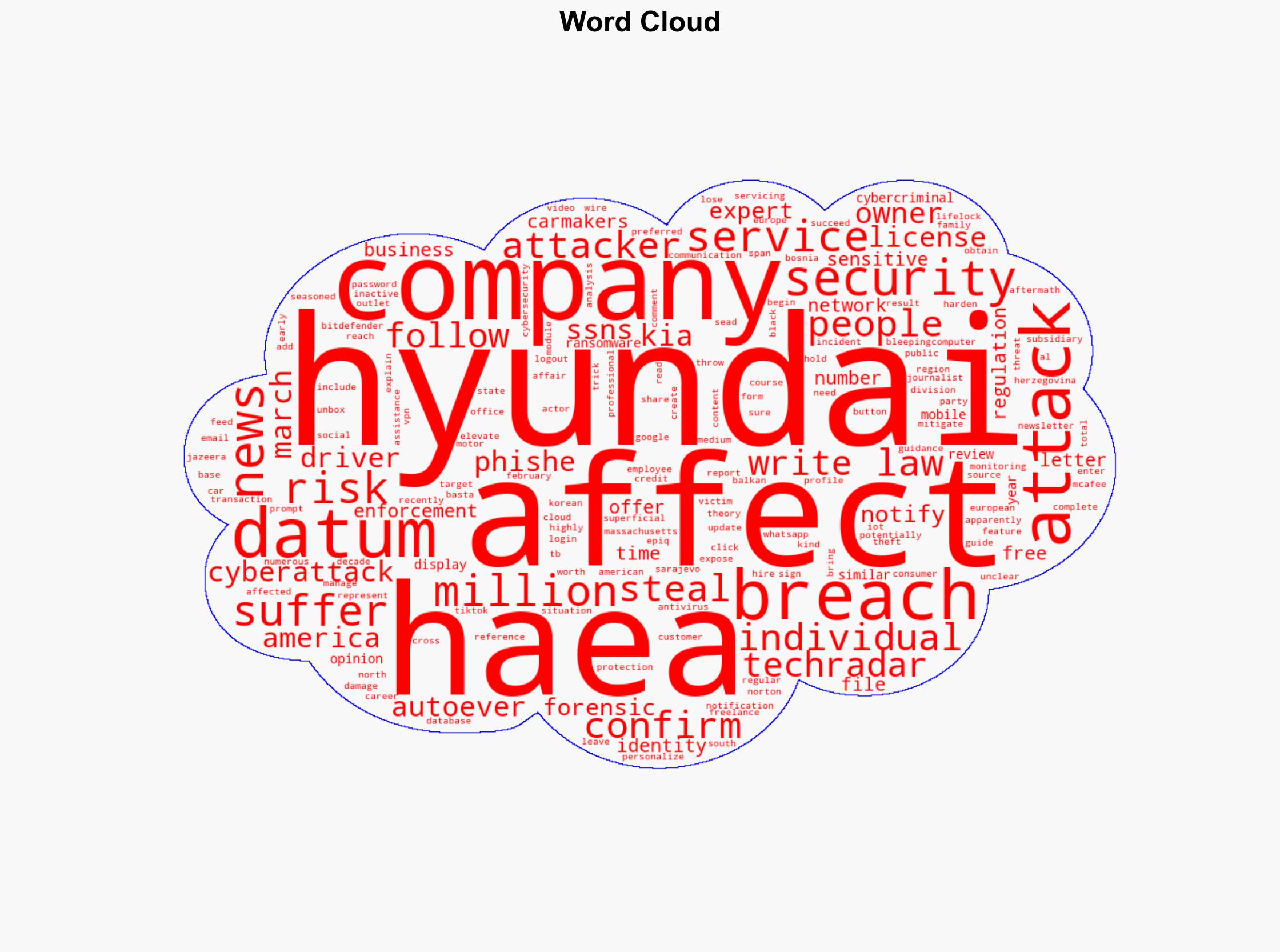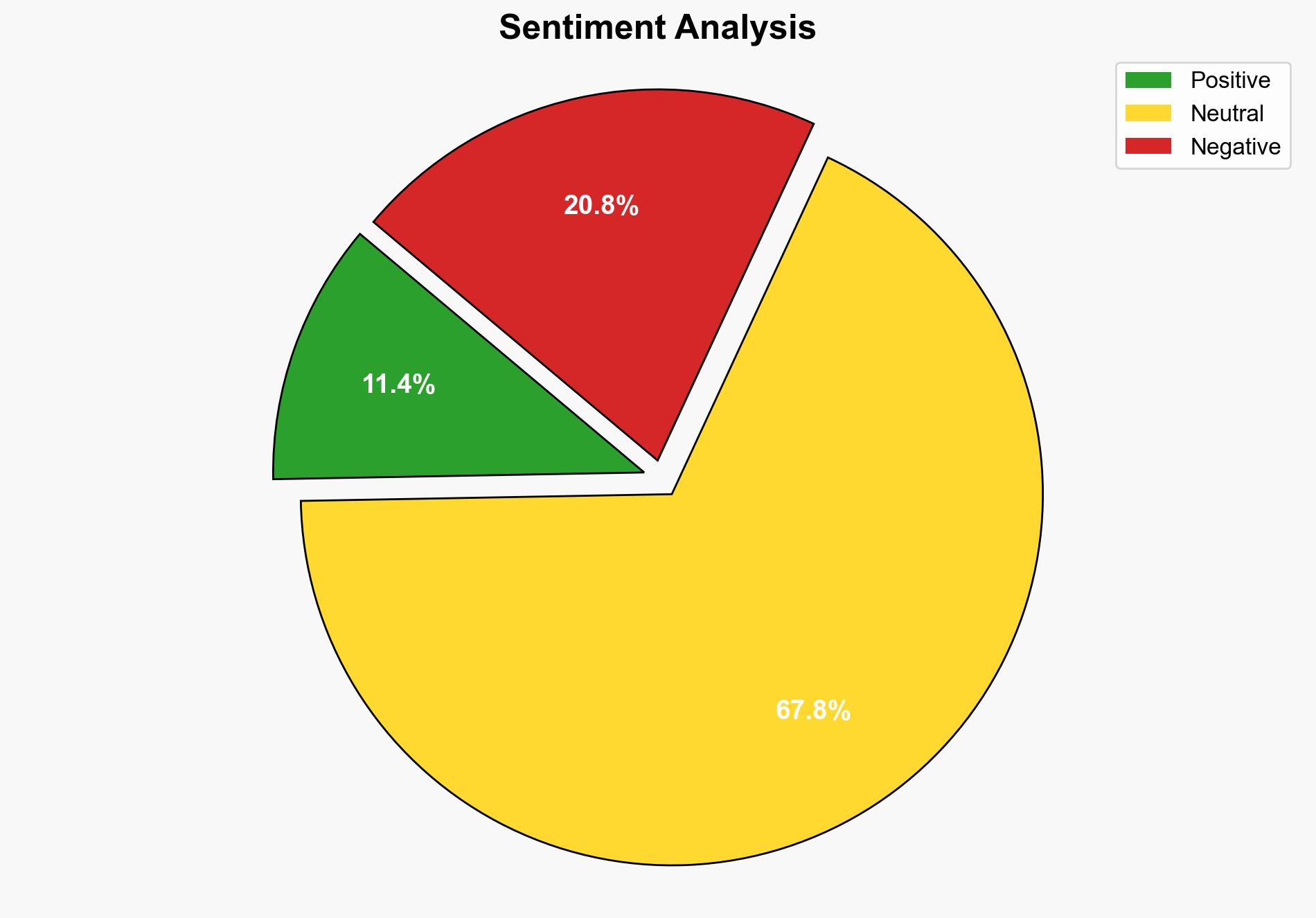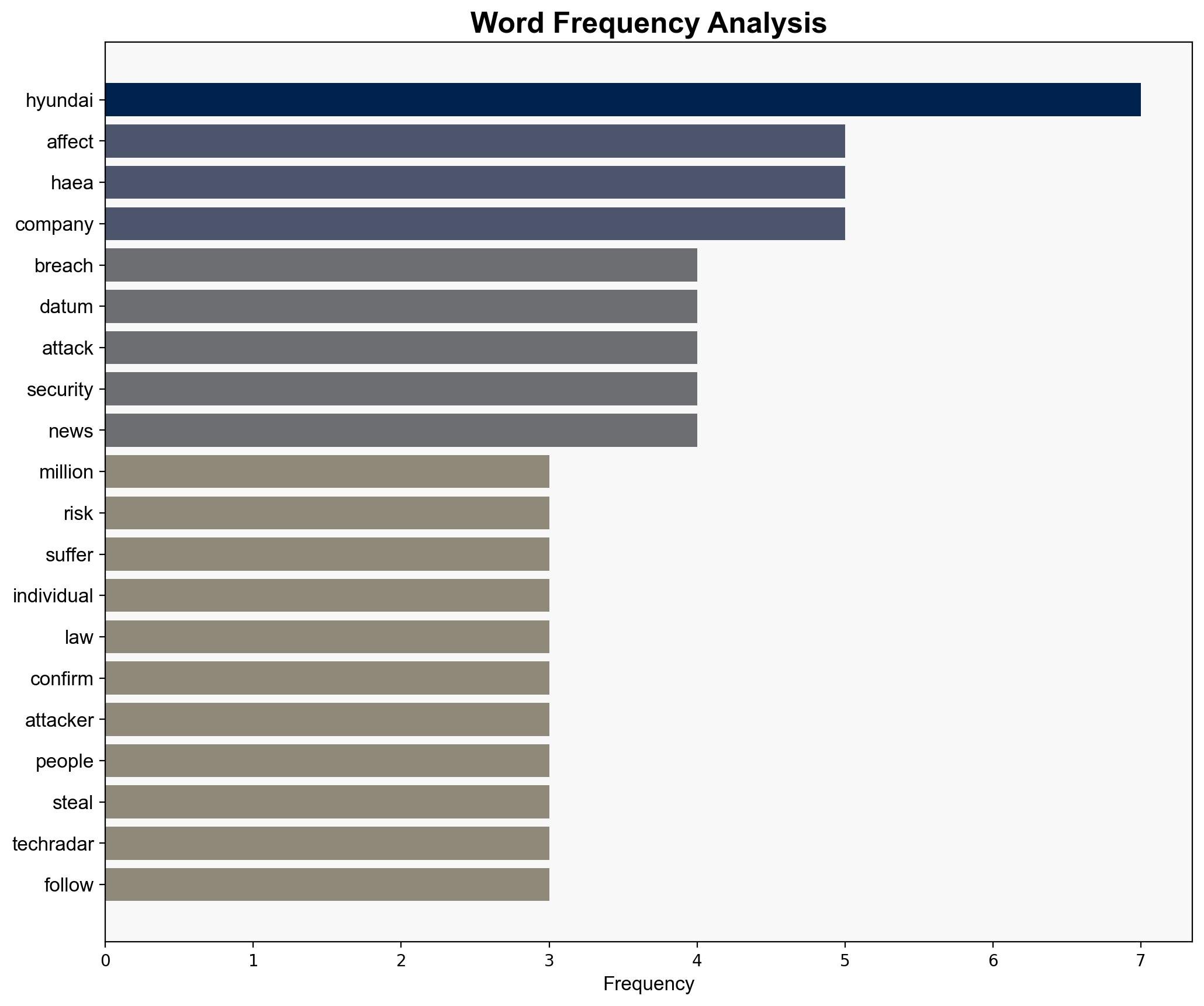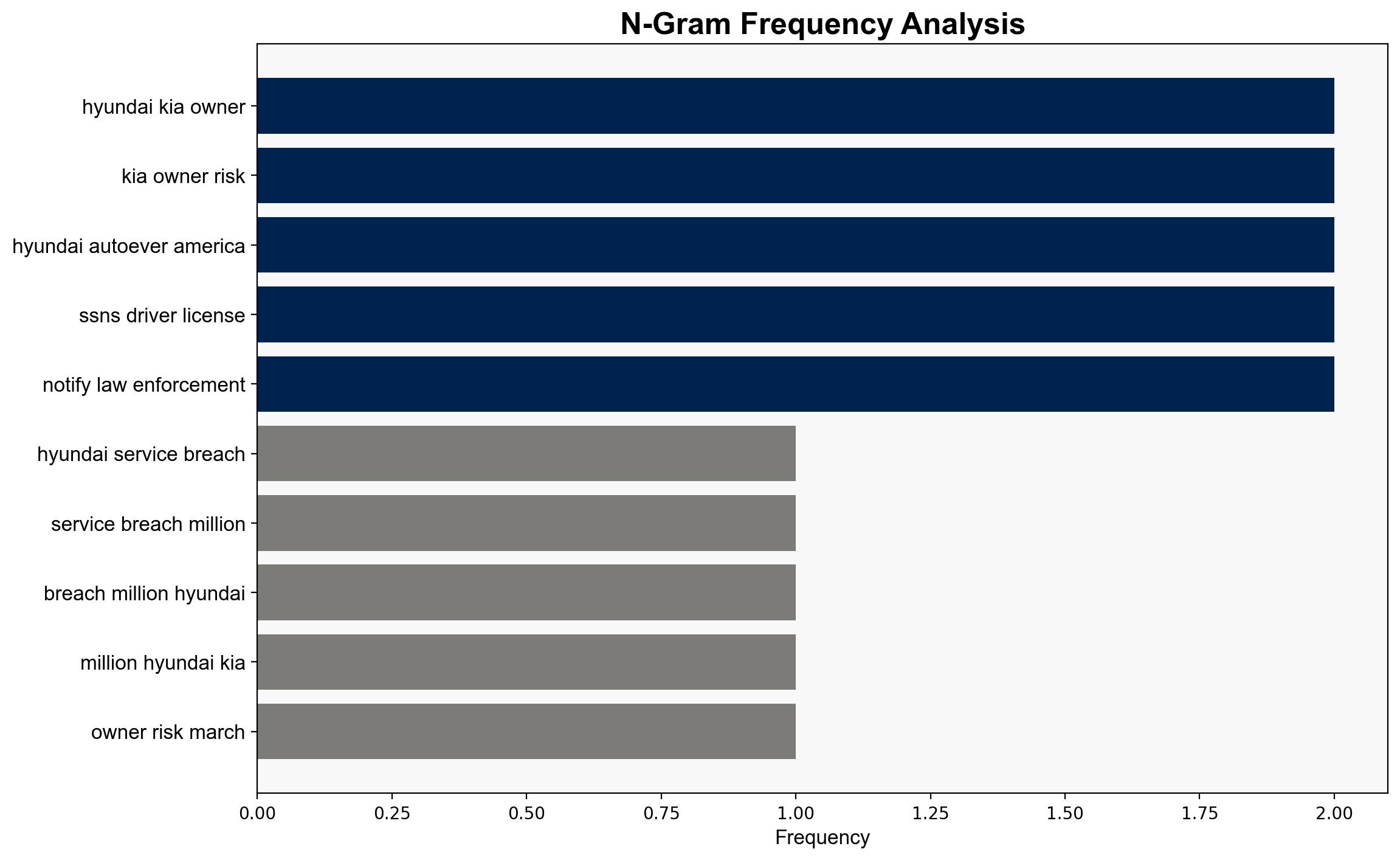Hyundai IT services breach could put 27 million Hyundai Kia owners in the US at risk – TechRadar
Published on: 2025-11-07
Intelligence Report: Hyundai IT services breach could put 27 million Hyundai Kia owners in the US at risk – TechRadar
1. BLUF (Bottom Line Up Front)
The most supported hypothesis is that the cyberattack on Hyundai AutoEver America was primarily aimed at data theft for financial gain, given the exposure of sensitive personal information. Confidence in this hypothesis is moderate due to the lack of detailed attribution and the potential for alternative motives. Recommended actions include enhancing cybersecurity measures and conducting a thorough investigation to identify the perpetrators and prevent future breaches.
2. Competing Hypotheses
1. **Hypothesis A**: The breach was primarily a financially motivated attack aimed at stealing sensitive personal data to facilitate identity theft and financial fraud.
2. **Hypothesis B**: The breach was part of a larger strategic operation by a state-sponsored actor to gather intelligence on US citizens, potentially for espionage or geopolitical leverage.
Using ACH 2.0, Hypothesis A is better supported due to the nature of the data stolen (SSNs, driver’s licenses) which are typically targeted for financial crimes. Hypothesis B lacks direct evidence, such as indicators of state-sponsored tactics or geopolitical context.
3. Key Assumptions and Red Flags
– **Assumptions**: It is assumed that the attackers’ primary goal was financial gain based on the data stolen. Another assumption is that the breach was not detected immediately, allowing significant data exfiltration.
– **Red Flags**: The lack of information on the attackers’ identity and methods raises questions about the scope and sophistication of the attack. The timing and coordination of the breach with other global cyber incidents could indicate a broader pattern.
4. Implications and Strategic Risks
The breach poses significant risks, including potential financial losses for affected individuals and reputational damage to Hyundai. There is also a risk of cascading effects if the stolen data is used in further cyberattacks or fraud schemes. Geopolitically, if state-sponsored actors are involved, it could escalate tensions and lead to retaliatory actions.
5. Recommendations and Outlook
- Enhance cybersecurity infrastructure and conduct regular audits to identify vulnerabilities.
- Engage with law enforcement and cybersecurity experts to trace the attackers and mitigate further risks.
- Scenario Projections:
- **Best Case**: The breach is contained, and the perpetrators are identified, preventing further data misuse.
- **Worst Case**: The data is widely exploited, leading to significant financial and reputational damage.
- **Most Likely**: Continued attempts at identity theft and fraud using the stolen data, with gradual mitigation over time.
6. Key Individuals and Entities
No specific individuals are named in the source. Entities involved include Hyundai AutoEver America and law enforcement agencies.
7. Thematic Tags
national security threats, cybersecurity, data breach, financial fraud





